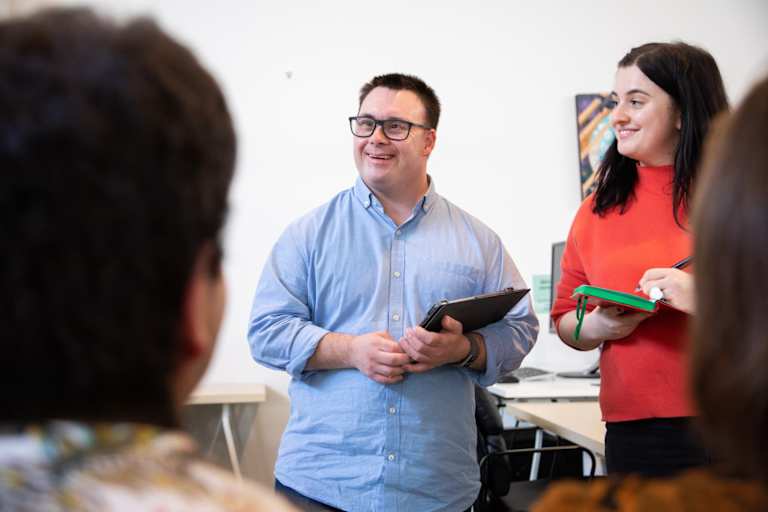Sports Psychology Ph.D. Programs Guide
Sports psychologists help athletes overcome mental barriers to peak performance. They also equip coaches, managers, and executives with psychology-based insights for building more effective athletic programs. In recent years, psychologists have joined high-level amateur and professional sports organizations at increasing rates.
To become a sports psychologist, you’ll need a specialized doctoral degree, such as a Ph.D. or a Psy.D.
This page profiles sports psychology Ph.D. programs, covering curricula, admission requirements, and how to become a sports psychologist.
What Will You Learn in a Ph.D. in Sports Psychology?
A Ph.D. in sports psychology is a specialized psychology doctorate covering psychological concepts that affect athletic performance. Building on bachelor’s and master’s sports psychology programs, doctoral degrees emphasize field-specific research, clinical studies, and psychological techniques with athletics applications.
Specific areas of study may cover:
- Managing the mental stresses commonly endured by high-performance athletes
- Motivational and mindfulness techniques
- Mental health risk reduction and prevention strategies for athletes
- Current sports psychology research
Students engage with research and statistical analysis methods to help them design and interpret studies and program results. Some Ph.D. programs also integrate exercise science into the curriculum, examining the many interactions between mental and physical wellness.
Accredited sports psychology Ph.D. programs fulfill state-level requirements for becoming a licensed psychologist. They also support entry to careers in research, academia, and postsecondary teaching.
Earning a Ph.D. vs. a Master’s
With a master’s degree in sports psychology, you may gain access to careers involving hands-on work with athletes. Among other roles, you could become a performance enhancement specialist or a sports psychology research assistant.
Sports psychology Ph.D. programs can lead to careers as a licensed psychologist or professor. For example, you’ll need a doctoral degree to become a fully licensed sports psychologist. Educational institutions also tend to prefer candidates with doctoral credentials when filling tenure-track teaching vacancies.
Degree Snapshot
Typical Admission Requirements: Some schools accept Ph.D. candidates with bachelor’s degrees, but most prefer or require a master’s degree. Ideally, your academic background will have direct relevance to sports psychology.
In addition to academic transcripts that indicate a history of strong academic achievement, you’ll likely need:
- A resume or CV
- A statement of purpose or personal essay
- Multiple letters of recommendation
- GRE scores
Review tips for applying to graduate programs in psychology before preparing your materials.
- Time to Completion: According to the American Psychological Association (APA), doctoral programs in psychology typically take 5-7 years to complete. Part-time learners may need more time to complete all degree requirements.
- Average Salary for Graduates with a Ph.D. in Sports Psychology: According to Payscale data from August 2024, professionals with Ph.D. degrees in psychology earn an average base salary of $105,000 per year.
Why Get a Ph.D. in Sports Psychology?
Some of the major benefits of earning a Ph.D. in sports psychology include:
The opportunity to study sports psychology topics of deep personal interest at the highest possible level.
Access to advanced careers and a path to becoming a licensed sports psychologist.
Deep, well-rounded academic and theoretical insights that can help you become a more effective and capable professional.
An academic credential that inspires confidence in your abilities.
The skills and ability to design and lead studies with the potential to impact the field’s knowledge lexicon.
Curriculum for Ph.D. in Sports Psychology Degree Programs
The exact curriculum you’ll follow depends on the school and the program’s focus. However, many sports psychology Ph.D. programs cover similar topics. Here’s a look at some of the courses you may encounter:
Social and Psychological Foundations of Performance
Individual and group dynamics can both impact the psychological factors that affect athletic performance. This course examines the ways in which psychology interacts with physical performance, how and why psychological impacts occur, and strategies for leveraging psychology to improve results.
Exercise and Health Psychology
This course, commonly found in programs that cover exercise science, explores theories of human behavioral change and its motivations. It also studies the ways in which people self-assess their own health habits and exercise behaviors. Students emerge with actionable knowledge of motivational techniques and behavioral analytics.
Advanced Research Methods in Sports Psychology
Students learn how to design reliable research programs for the targeted study of sports psychology and/or exercise science. Depending on the course’s underlying objectives and philosophy, coursework may consider historical research methods or focus primarily or uniquely on contemporary research frameworks.
Quantitative, Qualitative, Statistical, and Mixed-Method Research Analysis
Sports psychology research programs may use purely quantitative or qualitative methods or a combination of both. This course teaches advanced statistical analysis and interpretive techniques professionals can use to extract accurate insights from technical research initiatives.
Dissertation Seminar
Sports psychology Ph.D. programs typically culminate in a doctoral dissertation comprising original research into a relevant topic of the student’s choosing. Curricula usually include multiple dissertation modules spread out across multiple years, guiding the student through the process of designing, researching, writing, and revising their dissertation before presenting it for evaluation.
What Can You Do With a Ph.D. in Sports Psychology?
With a Ph.D. in sports psychology, you can pursue the license you need to practice as a sports psychologist. Licensure may lead to opportunities in private practice, within college or other high-level amateur athletics departments, or professional sports teams.
The general steps involved in becoming a licensed psychologist include:
- Completing a doctoral program, ideally one that’s accredited by the APA
- Engaging in 1,500-6,000 hours of supervised clinical experiences, as required by the psychology licensing board of the state where you plan to work
- Passing the Examination for Professional Practice in Psychology, a standardized test that ensures you possess the foundational knowledge needed to work as a psychologist
You can also work as a sports psychology or exercise science researcher, designing programs and initiatives that seek to better understand the interactions between human psychology and physical performance. Research-focused opportunities may be available through private businesses, public agencies, or academic institutions.
The research skills, analytical insights, and specialized knowledge you gain allow you to pursue career paths at the intersection of athletics, exercise, physical wellness, and mental health.
Professional Organizations
- Association for Applied Sport Psychology: An international association with thousands of members, the AASP offers members graduate training, professional development, and certifications. Members can also access awards and publications.
- Society for Sport, Exercise and Performance Psychology: A division of APA, this society offers members scholarly publications in the sports psychology field, award opportunities, and student resources.
- International Society of Sport Psychology: ISSP publishes a scholarly journal in sports psychology and offers ongoing workshops, training, and webinars for professional development. This international association also holds a conference every four years.
Frequently Asked Questions about Sports Psychology Ph.D. Programs
Sports psychology Ph.D. programs may lead to career opportunities with amateur or professional sports organizations, academic institutions, government agencies, or private businesses. With a license, you can also launch a private practice as a sports psychologist.


